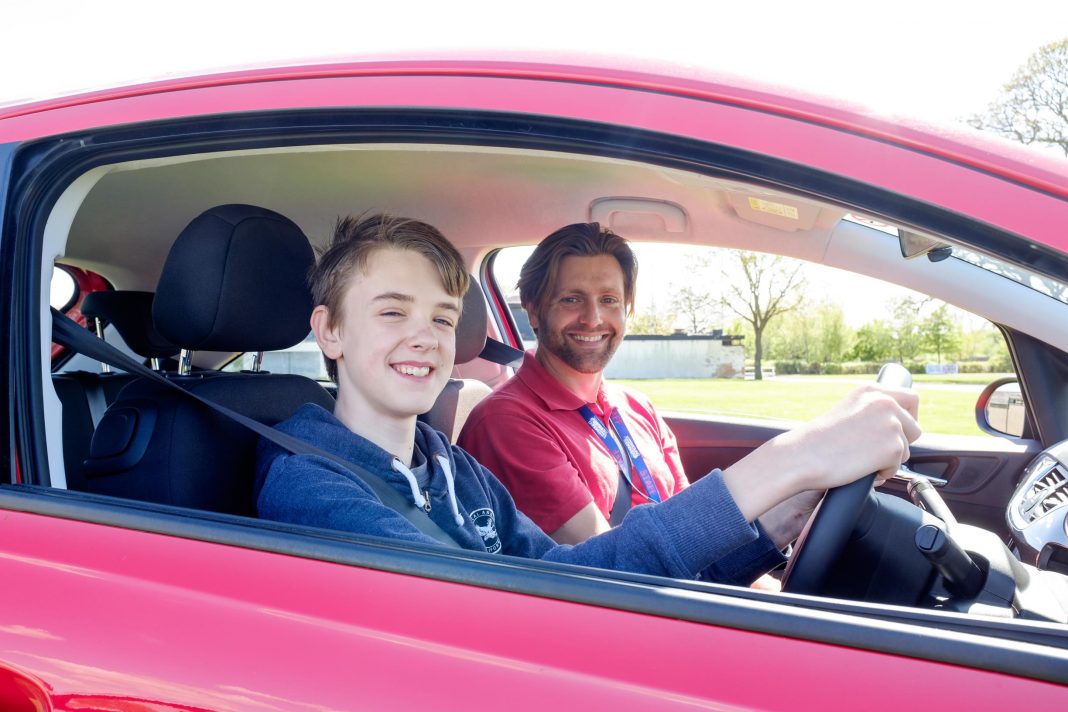Checking the car, phone usage, road rage, speeding and conquering fear all make the top 10 resolutions for UK motorists, according to research from Young Driver
When it comes to the UK’s motorists setting their New Year’s Resolutions, learning how to reverse properly claims three of the top 10 spots, according to new research.
After committing to checking tyres and oil levels more regularly, which is a resolution for one in four drivers, learning how to parallel park properly is second on the list, with 17 per cent of drivers wanting to perfect the skill. To “get better at reversing” was something one in seven felt they needed to do in 2018, whilst reversing into a parking bay was a worry for one in eight.
However, a confident one in five (18 per cent) felt they were such a perfect driver, there was nothing they’d need to work on or change next year.
The research was conducted by Young Driver, the UK’s largest pre-17 driving school, to see what seasoned drivers felt they hadn’t ever got to grips with properly since they took to the roads – or what bad habits they’d picked up.
Worryingly, using a phone behind the wheel still emerges as a major concern, with 13 per cent of drivers saying their resolution is to switch it off when they’re behind the wheel. One in 10 (11 per cent) admit to checking messages whilst at traffic lights, and eight per cent say they need to stop using their handset whilst driving.
Fear is also a common barrier for drivers, which they’d like to combat in 2018 – conquering nervousness about driving on motorways is a challenge for one in six drivers (16 per cent), whereas rural roads are the worry for one in 10 (10 per cent).
The Top Motoring New Year’s Resolutions for 2018
- To check tyre pressure and oil levels regularly (24 per cent)
- To learn how to parallel park properly (17 per cent)
- To conquer fear of driving on motorways (16 per cent)
- To get better at reversing (15 per cent)
- To not get road rage (14 per cent)
- To perfect reversing into a parking bay (13 per cent)
- To switch off phone when driving (13 per cent)
- To speed less (11 per cent)
- To stop checking messages when at traffic lights (11 per cent)
- To conquer fear of driving on country roads (10 per cent)
- To be more courteous to other road users, including cyclists and pedestrians (9 per cent)
- To stop using a phone behind the wheel (8 per cent)
- To always use indicators when turning (9 per cent)
- To use mirrors more (8 per cent)
- To not drive so close to the car in front (5 per cent)
Other resolutions mentioned included keeping the car clean and tidy, being more confident behind the wheel, and driving more frequently.
Laura White, head of marketing for Young Driver, which provides lessons for 5-17 year olds at more than 50 venues across the UK, said: “At Young Driver our instructors obviously spend a lot of time teaching youngsters the right and wrong way to drive – but of course children are watching and learning from their parents all the time. If you’re showing them it’s ok to take a call behind the wheel, or to get mad when another driver cuts in, they expect that’s how everyone drives.
“One in five newly qualified drivers will have an accident within six months of passing their test, and research shows that starting them learning from a younger age can half that risk – but it’s also vital that they have good role models to learn from outside of their lessons. Plus, it seems that demonstrating how to reverse or parallel park well might be an issue for quite a lot of people! Many drivers end up avoiding doing things, because they’re nervous, and then they lose the knack – so we’ve created some ‘how to’ videos so everyone can brush up on their basic manoeuvres, learners and experienced drivers alike!”
Young Driver’s how to videos can be found on its website at www.youngdriver.com and include parallel and bay parking, doing a turn in the road and reversing round a corner.
Regional differences
Those in Belfast and Southampton were most likely to think they needed to work on reducing their road rage (25 and 24 per cent), whereas drivers in Norwich were least likely to think that was a problem (9 per cent).
Parallel parking is the biggest worry for people in Cardiff, Leeds and Newcastle with one in four drivers in those cities making improving at it a resolution. Those living in Edinburgh were least likely to have any concerns, with only 2 per cent including it.
People in Edinburgh were most likely to think stopping using their phones behind the wheel should be one of their resolutions, with 20 per cent saying it was an issue for them. That is compared to Birmingham, Leeds, Nottingham and Southampton, where less than four per cent of drivers felt it was a necessary resolution for them.
Drivers in Cardiff and Newcastle are most likely to be nervous of driving on motorways (24 and 26 per cent). Those in London are most likely to be nervous of driving on rural roads (17 per cent).
Young Driver uses dual control Vauxhall Corsas and fully qualified instructors to teach 10-17 year olds how to drive at over 50 venues across the UK. More than 500,000 lessons have now been given. Five to 10 year olds can also learn in the specially created Firefly electric car. For more information go to www.youngdriver.com





